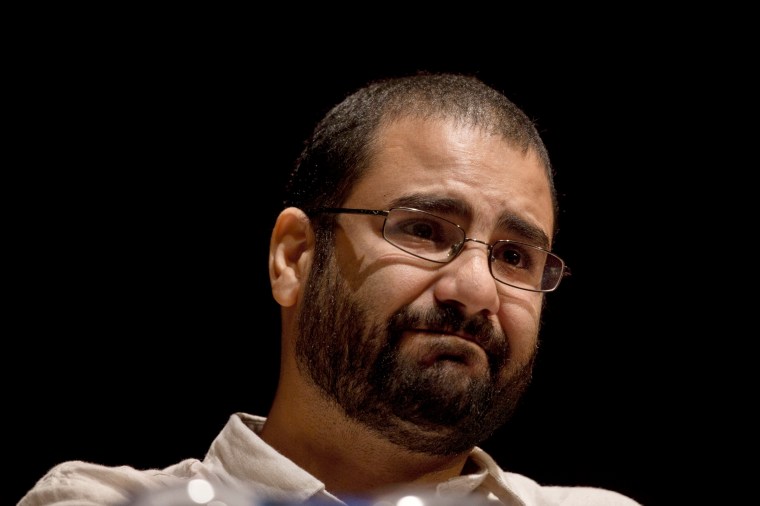
A new book on 'transforming the future of war' ignores key questions about whether some military innovations are even necessary
William Hartung
Nov 06, 2024The notion that AI-driven weapons will revolutionize warfare and put the country that masters them in the global driver’s seat is gospel among the new generation of techno-enthusiasts in the Pentagon and Silicon Valley.
But their claims for what emerging tech can do are unproven, and their visions of what it can achieve for the U.S. standing in the world are wildly unrealistic.
The latest addition to the AI discussion comes from Raj M. Shah and Christopher Kirchhoff in their new book, “Unit X: How the Pentagon and Silicon Valley Are Transforming the Future of War.” Shah and Kirchhoff are well qualified to speak on the topic. As former directors of the Pentagon’s Defense Innovation Unit X (hence the title “Unit X”), the two men spent countless hours building relationships between the Pentagon and Silicon Valley.
They also traveled the world to get current military personnel to share their thoughts on whether the weapons they were going into battle with were effective and user-friendly. If the book was a film, it could have been called “Raj and Christopher’s Excellent Adventure.”
Shah and Kirchhoff are right about one thing. Too often, the technology embedded in current weapons systems is far, far behind capabilities that are routine in the civilian sector. But the answer is to replace items that aren’t up to their assigned missions. The goal should not be to create an AI-driven arsenal, with AI controlling not only drones, but combat aircraft, tanks, and ships, with the objective of minimizing the use of human crews.
But just because a machine operated military can be created doesn’t mean it should be. Before going all in on an AI-driven military, Pentagon planners and the larger public should consider the danger of catastrophic accidents tied to software failures, or of a greater temptation to go to war in light of the reduced risk of human casualties.
Beyond the issue of how to integrate new technology into the armed forces lies a much more consequential question: how will a new emphasis on speed and massive data processing capabilities, deployed with little or no human involvement, shape how wars are fought? Will it make war more or less likely? Will it cause mass casualties? Is it the secret to diminishing Chinese power or the first step in an all out arms race?
These are all tough questions, but one thing is clear: just because an individual or firm has the ability to develop a revolutionary technology doesn’t mean they are the ones best equipped to decide how to use it.
But someone forgot to tell the new age militarists in Silicon Valley that. The most “visionary” leaders in the emerging tech crowd — people like Elon Musk (Space-X), Peter Thiel (Palantir), and Palmer Luckey (Anduril) — see themselves as technological saviors who know how to restore U.S. global dominance, beat China, and transform life as we know it, if only government would get out of the way and let them do the job. The new breed of Silicon Valley weapons makers doesn’t just want to make gadgets, they want to remake the world.
To their credit, Shah and Kirchhoff do not share the near delusional faith in the power of technology held by Musk and his cohorts. They’re mostly concerned about how to get the most up-to-date technology to the warfighter, and on how to avoid falling behind in the race to acquire next generation weapons. They have plenty of examples to back up their claims about the U.S. military using outmoded technology for critical functions.
A case in point is the Combined Air Operations Center (CAOC), based at al Udeid Air Base in Qatar. The authors described CAOC as “the command post for U.S. military operations across the Middle East.” When Shah visited the facility in October 2016, the CAOC looked bright, shiny and modern — at least at first glance. But upon closer inspection, Shah found the facility’s equipment to be dangerously out of date:
“[I]ts technology was woefully inadequate. Systems patched together with duct tape and band aids were making it unnecessarily difficult for our service members to do their jobs. … The technology at CAOC was holding people back, slowing things down, and it’s not too much of a stretch to say this –putting lives at risk.”
But while Shah and Kirchhnoff have done a good job of exposing the Pentagon’s technological weak points, they are on much shakier ground when they turn from talk about developing technology to weighing in on the U.S. role in the world. They are basically techno-alarmists, warning that if we lose the military tech race it will only be a matter of time until chaos reigns and the bad guys run the world.
According to Shah and Kirchhoff, this dangerous trend began in the 2010s:
“Other militaries sensed the fragility of what held together the world order — the ability of the United States to unquestionably win wars and keep the peace. Russia’s Vladimir Putin, Chinese President Xi Jinping, and North Korea’s Kim Jong Un each saw new ways to defeat the U.S. technologically.”
Unquestionably win wars? When was the last time that happened? The story of this century and prior is one of the United States taking on wars that should never have been fought, as in the Bush administration’s 2003 invasion of Iraq, or wars that went on far too long, as in America’s 20-plus year sojourn in Afghanistan. Needless to say, these conflicts did not make the world or their immediate regions more peaceful or more stable, given the hundreds of thousands of lives lost, the millions of people driven from their homes, and the installation of sectarian regimes that were either indifferent or outright opposed to taking dictates from Washington.
The problem in the above-mentioned wars was not the fault of the troops, who were by and large well-trained and well-armed. The problem was in the missions, which could not be won regardless of the technological sophistication of our forces. Even so, despite the clear evidence that technology alone will not secure America’s objectives, many of today’s military planners are looking at our biggest challenges — like how to deal with the threats posed by China — through a military-technical lens, putting diplomacy, dialogue, and reassurance in the back seat.
In the context of the recent, tragic history of American military interventions, Shah and Kirchhoff’s longing for a world where America calls the shots because of its military and technological superiority is almost quaint. The era of unsurpassed American military and economic dominance — which was never as great as advertised — is long gone, and a “revolution” in military technology will not change that. Trying to rise to dominance is a recipe for strategic and humanitarian disaster that will only hasten the decline in U.S. power and influence on the global stage.
A vigorous national conversation about how to subordinate new technology to a more realistic strategy is long overdue, and people like Shah and Kirchhoff should be part of that debate. But we need to hear more from experts and advocates outside the tech world if we are to come to a balanced conclusion.
Another key theme raised by “Unit X” is the difficulty of implementing change of any kind in the face of entrenched interests that have undue influence on the Pentagon, the Congress, and the broader public. Shah and Kirchhoff tell the story of two appropriations committee staffers who tried to zero out the budget of Unit X, for reasons unknown to either of them. Once Shah and Kirchhoff found the perpetrators, one of the staffers in question said that their boss was angry that none of the defense innovation funds were going to his home state of Indiana.
The pressure to spread the wealth from arms contracting across as many states and districts as possible is a tried and true method for keeping Pentagon dollars flowing, but it is also a deeply dysfunctional way to build a weapons system or set priorities for the future.
Advocates of new tech will continue to run into this problem as they push for a shift from big platforms like manned bombers, tanks and aircraft carriers to faster, more nimble, and more numerous systems that can be operated with or without human input. The political battle between the Silicon Valley upstarts and the old guard military-industrial behemoths like Lockheed Martin could be a decisive factor determining what kind of military America has in the decades to come.
Shah and Kirchhoff are under no illusion that the emerging tech crowd will automatically win the battle over the shape of America’s military, noting that “Advocates of innovation must keep pressing the seemingly Sisyphean task of reform. Leadership must back them to the hilt.”
There is no question that the United States needs strong, forward looking leadership if we are to navigate the coming period in world affairs in ways that promote peace and security rather than runaway arms racing and endless war. But developing new “miracle” technologies is not the answer. Technology should be a tool, not a cure for all of our ills or a driver of policy.
The sooner we abandon the hype surrounding emerging military technologies and take a cold, hard look at what strategy will be most likely to make the world a safer place in the years to come, the better off we will be.










